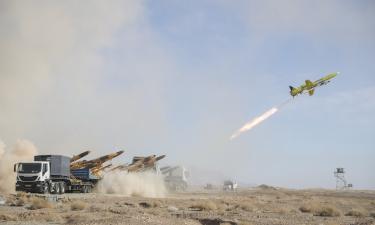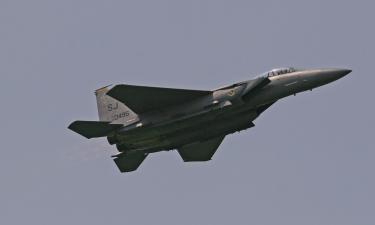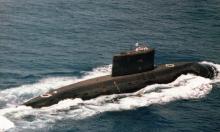PRAVDA.Ru version: Hamas and Israel unite against Arafat
The current conflict in the Middle East is caused not by the explosions of suicide bombers or Israel’s response; the problem is rooted even deeper than we can imagine. Politics, money, and religion are interlaced. The two nations are struggling violently because of territory that is considered to be historic native land by both of them.
Average people can hardly define the right and the wrong of the Middle East problem, not to mention the essence of the Mitchell and Tenet peace initiatives. Even the Saudi peace plan does not give answers to every question. Mitchell’s international commission completed its work right before another burst of violence in the Middle East. The US administration received a report on one more peace program in the region. Israeli is ready to follow the commission’s suggestions in the following way: first a cease-fire, and only after a period of quiet can peace talks be recommenced. The Palestinians insist that construction of Jewish settlements on occupied territories needs to be stopped first and foremost, and only after this can the mentioned above activities take place. International mediators have noticed a trap in the situation: it is easier for Arafat to cease fire than for Sharon to stop the construction of settlements. The Mitchell Plan provides for the blocking of the contstruction of Jewish settlements construction on the occupied territories, thus delivering a severe blow against Israel's right-wing forces and Sharon’s authority. Thus, the idea of a “Greater Israel," which is being fussed about by influential Israeli politicians now, may soon join its Maker, although Israel is short of territories for more immigrants. Ariel Sharon would not like the situation to develop like this. Until recently, the expansion was realized together with the peace talks, thus provoking much displeasure of the Palestinians. Indeed, while the parties were painfully negotiating ownership of the PA territories, frustrated schedules, and chased terrorists, Jews kept on colonizing more and more territories.
Itogi, a Russian magazine, reports that the incumbent prime minister has been a believer in colonization for a long period already, and Israel thinks he follows the concept outlined in a 1923 article “About iron wall” by Vladimir Zhabotisnky. Zhabotinsky thought that the Palestinian problem should settled in the following way: first, Palestinians are to be deprived of any hope to receive aid from Arabs; then, the national resistance of Palestinians is to be suppressed and the uncompromising Palestinian leadership is to be replaced with a more “moderate” one. By this, Israel would be able to impose a peace treaty on its own terms with force.
It was Ariel Sharon who started the realization of these ideas: the war general and old enemy of partisan leader Arafat made Muslims a “moderate” alternative to the national Palestinian movement. As infrastructure minister in the era of a mass migration from the Soviet Union, he started colonization of the disputable territories. The results of both strategies allowed Sharon to come to power.
What is the power that the Israeli prime minister stakes on? No matter how strange it may seem, he has chosen Hamas. Let me remind you of the organization. It was founded by Sheikh Ahmed Yassin on December 14, 1987 on the basis of two Islamic groups, officially registered as cultural and educational movements. The HQ is located in Teheran. Hamas consists of political and fighting organizations. The Hamas leader was arrested and convicted in 1991, and Moussa Abu-Marzuk (who had been living in the USA and performed Hamas financial provision since 1974) then took over. After that, Hamas subdivisions appeared and still function in the USA, Europe, Saudi Arabia, Jordan, Syria, Lebanon, and Iran. There are shahid groups in Hamas, consisting of young suicide terrorists between the ages of 18-27, mostly from poor families. Israel believed the terrorists to be a counterbalance to the Palestine Liberation Organization and Yasser Arafat, which is why Israel has rendering financial support to the terrorist group for a very long period. Today, Hamas subsists on its own and holds the position of the key Islamic terrorist group in the world.
When Ariel Sharon ousted the PLO to Tunisia after completion of the Lebanese war at beginning of the 1980s, he was working hard to make Palestinians on the occupied territories forget Yasser Arafat. Islamists were preferred as a “lesser evil," and they were expected to turn Palestinians away from the national liberation struggle. Israeli special services established contacts with the Islamic spiritual leaders in 1982-1983. In the beginning, no acts of terrorism or kamikadze were spoken about at all. Islamic organizations were occupied with philanthropy, opened mosques, hospitals, kindergartens and libraries. Spiritual leader of Muslim brothers Sheikh Ahmed Yassin launched a weekly program on Israeli television to call upon Palestinians to reconcile to their fate anddevotion to the religion. The program was often used to blame Arafat’s gang, the so-called Tunisian mafia “living in luxurious hotels and drinking much wine.”
This peaceful Islamic propaganda, stimulated by the Jews themselves, could have lasted for a long period, but the first intifada broke out in 1987. The Islamists understood that it needed partisan experience and a hero halo, so characteristic for Arafat’s militants, to win authority among the Palestinians. A radical change occurred in the tactics of the Islamists. Ahmed Yassin created Hamas, a military division of Muslim brothers, the Koran idea of martyrdom for faith was declared a secret weapon at that.
The first acts of terrorism committed by Islamic jihad kamikadze and Hamas were a shock for the Israeli society, and the then prime minister of Israel Yitzhak Rabin (the leader of Israeli leftists) became reconciled to the fact that talks on future arrangement in Palestine would be held with people of Arafat. He said, “I understand that, if we do not recognize the PLO now, the radical Islamists will gain the upper hand and no peace treaty will be spoken about for a long period.” Rabin was a clever politician, no less clever than Sharon himself, and understood at the very dawn of the 1990s that Israel had forgotten itself in “playing an Islamic alternative to Arafat," but it was too late. The organization already became an independent political power in the Middle East, its leader, Sheikh Yassin, became as influential as Yasser Arafat.
The sheikh set off for a long tour of Arab countries in 1998. He visited Saudi Arabia, the Persian Gulf countries, Syria, Sudan, and Iran in four months. Arab sources inform that he managed to collect about $300 million within the period. The money was spent on the consolidation of Hamas political and public positions on the territories under PA jurisdiction.
At the end of June 1998, Yassin returned to Gaza. The triumphant return made Arafat (who is considered by Palestinian political scientists to be weaker than Yassin from a political point of view) revise his policy concerning Hamas. Arafat offered to cooperate with Hamas. Yassin refused, as such cooperation would mean that Hamas would have had to adopt the Norwegian agreements.
The Declaration of principles signed by Rabin and Arafat in 1993 after the talks in Oslo was called “a deadly sin” by the Hamas leader. The peace treaty made it possible for Arafat and his team to get back to the occupied territories, control over which was to be gradually taken over by the new Palestinian authorities. Islamists, probable candidates to Palestine’s “moderate leaders," became an enemy for the Middle East.
Let us imagine the following: Ariel Sharon, being dissatisfied with any variant of the peace treaty with Palestinians, as they demand to block construction of Jewish settlements, launches a large-scale military operation on Palestinian territory. Arafat then moves away from management of the authority and, all the same, remains responsible for all acts of terrorism committed in the past and planned in the future by the Palestinians.
At the same time, the Israeli military operation designed to destroy the terror infrastructure,may last for a very long period, which is quite convenient for Sharon. Ariel Sharon is ready to sacrifice the lives of his people for the sake of “Greater Israel."
What about Hamas and its leader Ahmed Yassin? In his interview to The Jerusalem Report he mentioned that “Islam allows to conclude a short-term armistice with enemies but bans any permanent armistice. If my brother turns me out of home, I will be at war with him. This land is sacred for three religions, which is why we are to find a way out and live in peace, justice, and equality.”
The two bitter enemies are ready to conclude an armistice against the third one, Yasser Arafat namely. Both of them are working on tactical problems now: Sharon is leveling Arafat’s influence, at the same time getting rid of a peace plan that is unfavorable for Israeli. The Hamas leader assumes command over the Palestinian opposition, while Arafat is isolated to his Ramallah residence. Political and financial support will be automatically switched from the PLO to Hamas. It is not a delirium, which is confirmed by the following: Israel, which has already declared its intention to liquidate centers of terrorism, does not disturb Hamas, which claims responsibility for several recent acts of terrorism. This is rather strange. The previous connection between Israel and Hamas confirms the statement. An Eastern wisdom says that “ Invincibility is contained in yourself, a possibility of a victory is contained in your enemy.” That is why the union was created to win.
Dmitry Litvinovich PRAVDA.Ru
Translated by Maria Gousseva
Read the original in Russian: https://www.pravda.ru/main/2002/04/04/39227.html
Subscribe to Pravda.Ru Telegram channel, Facebook, RSS!





